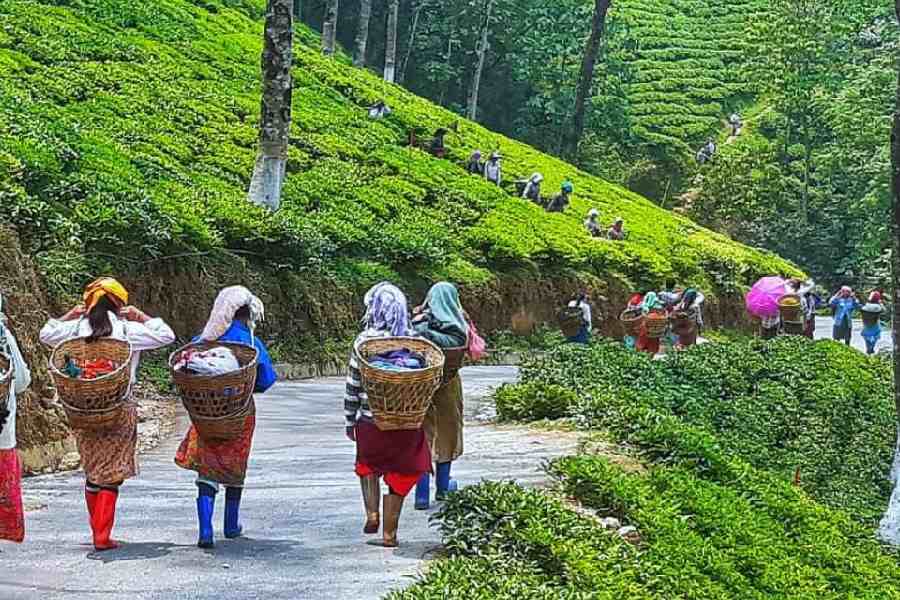Trade unionism in the Darjeeling hills is witnessing a new shift with an apolitical organisation making its presence felt in a landscape that political forces have traditionally dominated.
Hill Plantation Employees Union (HPEU), registered as a trade union only last year and not aligned with any political parties, is slowly attracting the attention of tea garden workers.
The union's representatives were called to a “conference” by the office of the assistant labour commissioner that was held in Siliguri on Wednesday to discuss issues related to Longview tea garden.
Apart from the apolitical HPEU, four other unions which are affiliated to the Gorkha National Liberation Front (GNLF), Communist Party of Revolutionary Marxists (CPRM), Bharatiya Gorkha Prajatantrik Morcha (BGPM) and the Trinamool Congress were also invited to the meeting.
Sources in the Darjeeling Tea Association (DTA), which looks after the interest of the planters in the hills, said for any union to be recognised in a garden, at least three basic criteria must be fulfilled.
“The union must be registered with the relevant trade union act of the state, enjoy the support of at least 10 per cent of the workforce in the garden and maintain the balance sheet annually,” said a source in the DTA.
Chewang Yonzone, vice-president, HPEU, said: “We were registered as a trade union last year and we have a good support base in at least three gardens. Workers are slowly joining us in other gardens also.”
The HPEU is not restricting itself to tea gardens. The union is spreading its wings on the cinchona plantation as well.
“We are getting a good response on tea and cinchona plantations,” said Yonzone.
Veterans in the tea industry said the emergence of an apolitical union in the Darjeeling hills was a “significant” development worth “monitoring closely”.
Otherwise, tea garden workers have mostly aligned with the predominant party in the hills.
“While political parties are still dominant in tea gardens, the small but important beginning made by an apolitical union can change the equations between planters and workers in the hills,” said an observer.
The acceptance of an “apolitical force” among workers in the tea gardens could also be an indicator of the failure of the political unions on different fronts, observers said.
“In the tea gardens, many issues like minimum wages and land rights have not yet been sorted out,” said the observer.
“The unions have for years been talking about the need to hold bonus talks during the plucking of the first flush in March to apply pressure on the management. But this has never happened,” said an employee of a tea garden.
The talks on the annual bonus usually take place just ahead of Pujas and there has been disgruntlement among labourers on the ways the bonus is negotiated.
The bonus rate is normally agreed on by the planters and the unions. The minimum rate of the bonus is 8.33 per cent of the worker's annual earnings and the maximum is 20 per cent.











